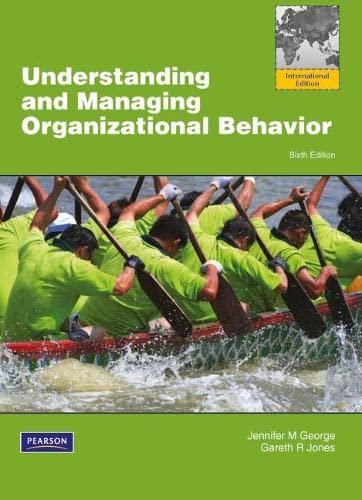Organizations work most effectively when their members voluntarily engage in organizational citizenship behaviors. You have likely witnessed
Question:
Organizations work most effectively when their members voluntarily engage in organizational citizenship behaviors. You have likely witnessed some kind of organizational citizenship behavior. You may have seen this behavior performed by a coworker or supervisor where you work. You may have seen this behavior when you were interacting with an organization as a customer or client. Or someone in your university (a faculty or staff member or a student) may have gone above and beyond the call of duty to help another person or the university as a whole.
Your objective is to identify instances of OCB and think about how managers can promote such behavior.
Each member of the class takes a few minutes to think about instances of organizational citizenship behavior that he or she has observed and makes a list of them. The class then divided into groups of three to five people, and each group appoints one member as spokesperson to present the group’s conclusions to the whole class. Group members do the following:
1. Take turns describing instances of organizational citizenship behavior they have observed.
2. Discuss the similarities and differences between each of these instances of organizational citizenship behavior and suggest some reasons why they may have occurred.
3. Compile a list of steps that managers can take to promote organizational citizenship behavior. Spokespersons from each group report the following back to the class: four examples of organizational citizenship behavior that group members have observed and three steps that managers can take to try to promote OCB.
Step by Step Answer:

Understanding And Managing Organizational Behavior
ISBN: 9780273753797
6th International Edition
Authors: Jennifer M. George, Gareth R. Jones





